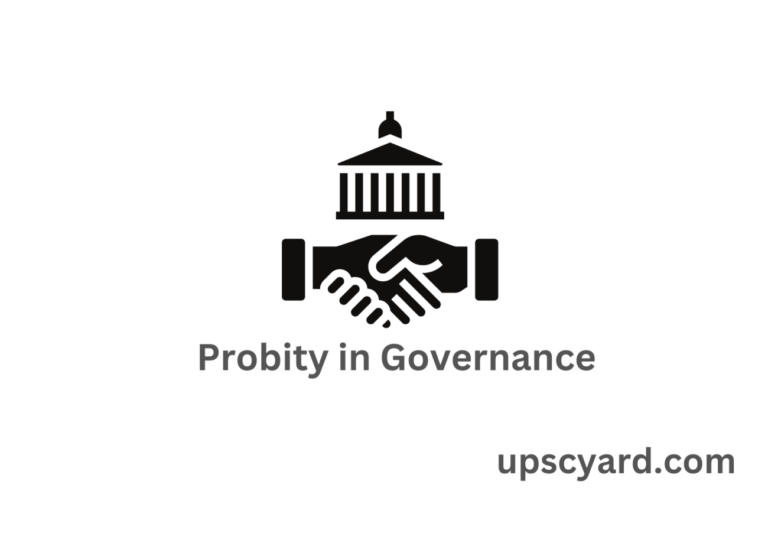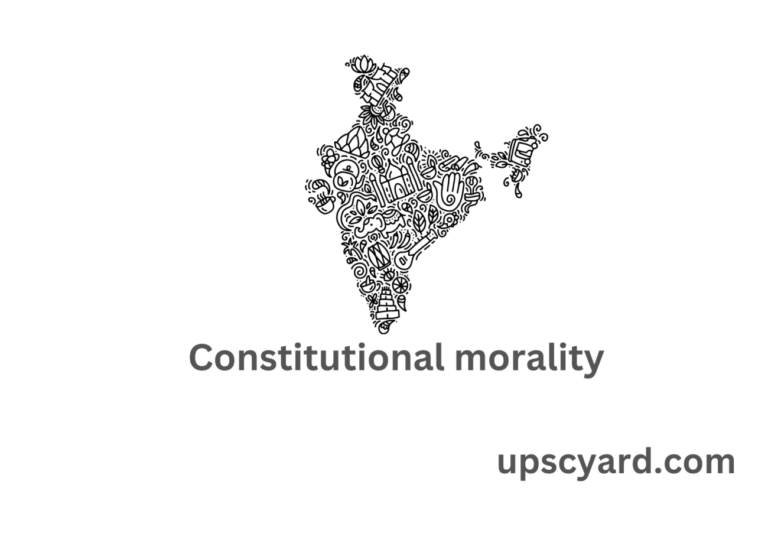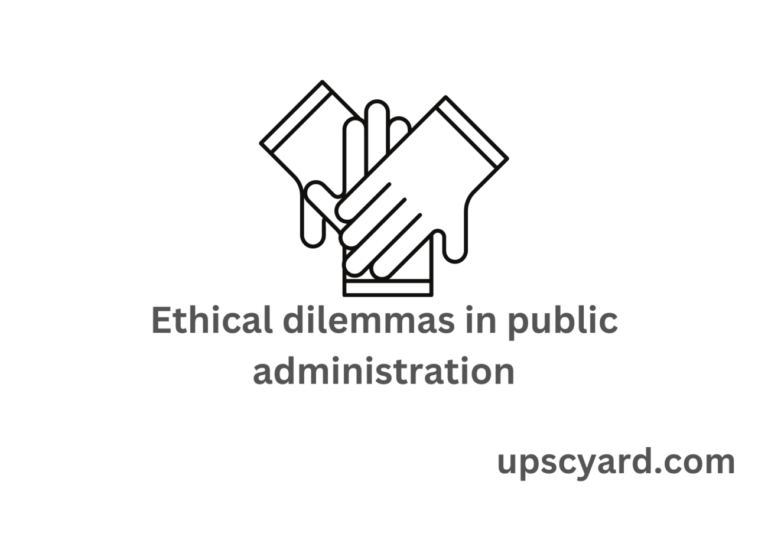Public life and Public Servant
Engagement in public life plays a pivotal role in creating a flourishing and united society, fostering a sense of togetherness, common values, and a commitment to the collective well-being. When individuals actively participate in public life, they wield the power to shape their community and drive positive transformations and advancements. This active involvement cultivates a sense of citizenship, where people recognize that their individual actions hold the potential to influence the greater community and the entire nation.
The Seven Principles of Public Life
Selflessness:
Those in public office must act with a primary focus on the public interest, placing the welfare of the community above personal gain.
Integrity:
Public officeholders must avoid any entanglements that could lead to inappropriate influences in their work. They should refrain from making decisions to benefit themselves, their family, or friends financially or otherwise. Full disclosure and resolution of any interests and relationships are imperative.
Objectivity:
Public officeholders must make impartial, fair, and merit-based decisions, relying on the best available evidence without discrimination or bias.
Accountability:
Public officeholders are answerable to the public for their actions and decisions, subjecting themselves to necessary scrutiny to ensure transparency.
Openness:
Public officeholders should act and decide transparently, with information made accessible to the public unless clear and lawful reasons dictate otherwise.
Honesty:
Public officeholders should prioritize truthfulness in their conduct.
Leadership:
Public officeholders should exemplify these principles through their own behavior and treat others with respect. They have a responsibility to actively promote and wholeheartedly support these principles while confronting and challenging poor behavior whenever it arises.
Public servant
The qualities of a public servant are crucial for effective governance and service delivery. Here are some essential qualities expected of public servants in India:
- Integrity: One of the most vital qualities of a public servant is integrity. They should be honest, ethical, and transparent in their actions and decisions, upholding the highest standards of moral and professional conduct.
- Commitment to Public Interest: Public servants should prioritize the interests of the public over personal or political interests. They must demonstrate a genuine commitment to serving the citizens and addressing their needs.
- Accountability: Public servants should be accountable for their actions and decisions. They must take responsibility for their work and be open to scrutiny and feedback from the public.
- Empathy and Sensitivity: India is a diverse country with various socio-economic backgrounds. Public servants should be empathetic and sensitive to the needs and concerns of different sections of society.
- Problem-Solving Skills: Effective public servants need to possess strong problem-solving abilities. They should be able to analyze complex issues, devise practical solutions, and implement policies for the betterment of the public.
- Adaptability and Resilience: India faces various challenges and changes in its socio-economic landscape. Public servants should be adaptable and resilient in their approach, being able to work under diverse and sometimes challenging circumstances.
- Communication and Collaboration: Public servants interact with diverse stakeholders, including the public, government officials, and other agencies. Effective communication and collaboration skills are essential for successful service delivery and policy implementation.
- Leadership and Decision-making: Public servants often hold leadership roles, and they need to make informed and responsible decisions for the greater good. Strong leadership qualities and sound decision-making skills are vital for effective governance.
- Knowledge and Expertise: Public servants should possess domain-specific knowledge and expertise in their respective fields to ensure well-informed decision-making and policy formulation.
- Technological Proficiency: As India embraces digital transformation, public servants should be proficient in utilizing technology for efficient governance and e-governance initiatives.
- Dedication and Work Ethic: Public service requires dedication and a strong work ethic. Public servants should be committed to their duties and strive to deliver quality services to the citizens.
- Political Neutrality: Public servants should maintain political neutrality and execute their duties impartially, irrespective of political affiliations.
Overall, public servants in India should embody these qualities to effectively serve the diverse needs of the nation and contribute to its progress and development.
Liability of corrupt public servant to pay damage
There is currently no provision for civil liability or compensation for individuals or organizations harmed by the misconduct of a public servant.
To address this, it’s recommended that:
- Clearly defined circumstances under which damages would be payable should be established, along with principles for assessing damages and criteria for awarding compensation to victims of public servant misconduct.
- Adequate safeguards should be implemented to ensure that genuine mistakes do not lead to damages. This will prevent public servants from being discouraged to make fair and prompt decisions.
To further enhance the legal framework:
- A new chapter should be included in the Prevention of Corruption Act to hold public servants liable for reimbursing losses caused by their corrupt actions. In addition to criminal penalties, they should be responsible for compensating the state or affected citizens.
- Trial procedures under the Prevention of Corruption Act need to be expedited. Delays often occur due to accused parties requesting frequent adjournments, challenging interim orders, and obtaining stays from higher courts during the trial. Special judges designated to handle corruption cases are sometimes preoccupied with non-corruption cases.
To tackle these issues:
- Legal amendments, specifically in the Code of Criminal Procedure (CrPC), should set specific time limits for different trial stages.
- Special Judges appointed under the Prevention of Corruption Act should prioritize cases related to corruption, and other responsibilities should only be assigned if there is insufficient workload under the Act.
- Court proceedings for Prevention of Corruption Act cases should be conducted on a daily basis, with minimal deviations from this schedule.
- The Supreme Court and High Courts should establish guidelines to prevent unwarranted adjournments and unnecessary delays.
Code of ethics for civil servant
A proposed ‘Public Service Bill’ currently under review by the Ministry of Personnel, Public Grievances, and Pensions outlines a set of core expectations for civil servants, referred to as “values.”
The key values envisioned in the Bill are:
- Dedication to the fundamental principles enshrined in the Constitution’s preamble.
- A commitment to non-partisan functioning.
- Prioritizing good governance for the betterment of the people as the central goal of the civil service.
- An obligation to act objectively and impartially.
- Emphasis on accountability and transparency in the decision-making process.
- Upholding the highest ethical standards.
- Selection of civil servants based on merit while respecting the cultural, ethnic, and other diversities of the nation.
- Ensuring economic and efficient use of resources while avoiding wasteful expenditure.
- Providing a healthy and collaborative work environment.
- Encouraging communication, consultation, and cooperation at all levels of personnel in the execution of duties.
To further enhance this framework:
- ‘Public Service Values’ that all public servants should strive to embody should be explicitly defined and made applicable across various levels of government and parastatal organizations. Any violation of these values should be deemed as misconduct, warranting appropriate disciplinary action.
- Comprehensive provisions related to conflicts of interest should be included in the Code of Ethics and the Code of Conduct for officers. Additionally, serving officials should not be nominated to sit on the boards of public enterprises. However, this restriction would not apply to nonprofit public institutions and advisory bodies.




